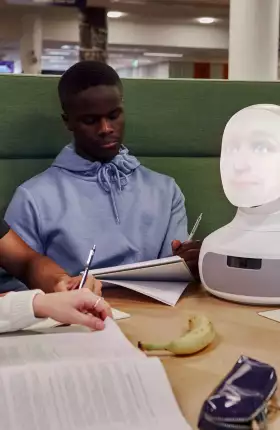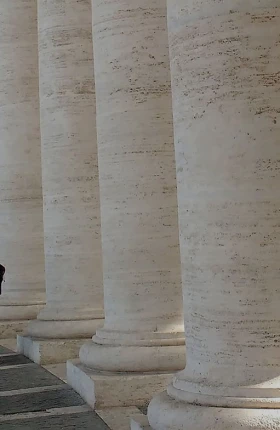The Obstacle
Around the world, 53% of children in low- and middle-income countries are experiencing learning poverty, struggling with fundamental reading and comprehension skills. Up to 250 million children globally are unable to access education consistently, largely due to war, food insecurity, migration, and the wide-ranging effects of climate change.
While these children are being deprived of their right to an education, they are also being stripped of the potential to improve their future economic conditions. This perpetuates a cycle of poverty that is incredibly difficult to break. Entire communities suffer as a result, with reduced economic growth and a diminished capacity for innovation and problem-solving.
As part of the United Nations, UNICEF is uniquely positioned to make a positive impact and bridge this gap. In 2018, it created the Learning Passport in partnership with Microsoft and the University of Cambridge and supported by BCG. The Learning Passport is a digital platform that offers educational materials and resources enabling children to continue their learning no matter where they are. At the time, an estimated 127 million young people around the world were facing displacement and interruption in their education.
In 2020, shortly after the program’s launch, the Learning Passport faced an inflection point as the world locked down due to COVID-19. Demand for digital learning surged, and the Learning Passport quickly adapted to meet unprecedented demand. The resulting rapid expansion of the program unlocked new opportunities to tackle even more difficult challenges, including the need to reach the 1.3 billion children aged 3 to 17 globally who do not have access to the internet.
Our Approach
In 2023, UNICEF embarked on a transformational scale-up initiative, aiming to transition from a reactive response strategy to a robust, sustainable operating framework, with the objective of reaching 55 million children and young learners over the next decade with the Learning Passport.
Over a six-week period, UNICEF collaborated with BCG to help scale the Learning Passport platform and leverage its significant growth. Throughout this transformative phase, BCG supported UNICEF’s journey through a variety of roles:
- Enhancing partnerships and scalability by formulating a strategy focused on strengthening the partnership with private-sector supporters like Microsoft, broadening the Learning Passport’s reach, and creating a sustainable business model.
- Navigating UN systems by drawing on the broad set of BCG’s expertise. A unified vision suitable for the complexity of the UN system was essential, taking into account its perspectives and scale, but utilizing a private-sector lens for product design, business model, and strategy.
- Pressure-testing the strategic vision to identify risks and opportunities, combining insights from both the private and public sectors. Delivery models in Mexico and India were thoughtfully reviewed to identify areas for growth and resource allocation, refining the strategy for broader reach and addressing the distinct needs of these communities. This process allowed for the Learning Passport’s strategic direction to be refined, improving risk management and capturing opportunities for growth.
- Strategic business planning, which included designing a private-sector approach that accommodated public-sector, cost-effective technological solutions—like Raspberry Pi tiny computers—to ensure offline access to educational content, aligning with UNICEF's accessibility goals.
The Result
Since its launch in 2019, the Learning Passport has expanded to reach 40 countries, with approximately 7 million students using the Learning Passport for their education and is well on its way to reaching 55 million learners over the next 10 years. In 2021, the program was named one of Time Magazine’s Best Inventions.
In collaboration with BCG, the Learning Passport has fine-tuned its strategic direction for both immediate and future impacts. This has involved setting clear criteria aligned with UNICEF's vision and the specific requirements of different regions, preparing the platform for expansion and enabling it to support a wide variety of learners effectively.
The initiative was meticulously planned to dismantle access barriers, promote inclusive and culturally sensitive education, and crystallize the vision for long-term collaborative efforts.
Looking ahead, the initiative continues to focus on leveraging digital technology and building cross-sector partnerships to support global learning, especially for the most marginalized children. With a balanced view of its achievements and goals for the future, the Learning Passport exemplifies the impact of collaborative efforts toward creating a more educated and equitable world.
Meet the Experts on Digital Education





Explore our Related Offerings and Insights











